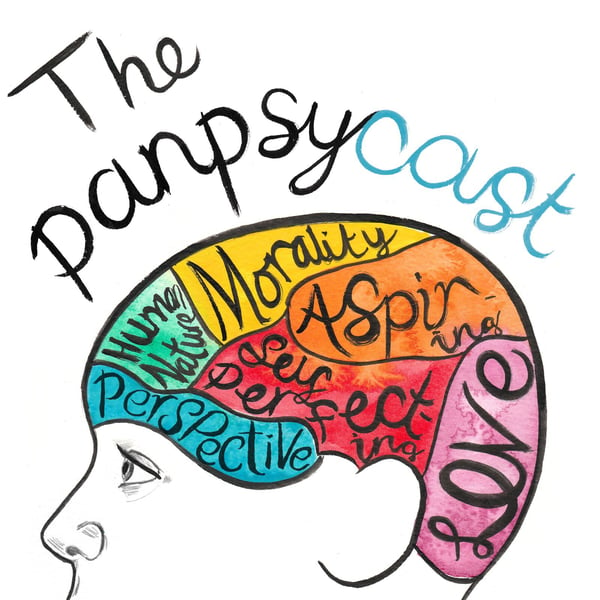Episode 55, Franz Kafka's Metamorphosis (Part III - The Meaning)
The Panpsycast Philosophy Podcast
Jack Symes | Andrew Horton, Oliver Marley, and Rose de Castellane
4.8 • 604 Ratings
🗓️ 24 February 2019
⏱️ 46 minutes
🧾️ Download transcript
Summary
Published in 1915, Franz Kafka’s The Metamorphosis is a gruelling and ironic depiction of the pressures imposed by family and profession in the Twentieth Century. The novella centres around travelling salesman Gregor Samsa who, one morning, finds himself transformed into an insect. What follows, depending on the interpretation, is a reflection of how modern life provides a misunderstanding of predicament and a lack of empathy towards those who have been beaten down by an unforgiving capitalist system.
Equally, The Metamorphosis asks questions of Gregor himself. Over time he has continued to disregard his own well-being and autonomy, seeing himself as the saviour of his family’s debts. Yet, by doing so, he has missed the fact that his family appear to resent the house he has chosen to rent, or that their debts are not quite as bad as they seemed. He has taken a cross which he need not have beared.
In the words of Vladimir Nabokov, “In The Metamorphosis, contract and unity, style and matter, manner and plot are most perfectly integrated”.
Contents
Part I. The Life of Franz Kafka.
Part II. The Plot.
Part III. The Meaning.
Part IV. Further Analysis and Discussion.
Transcript
Click on a timestamp to play from that location
| 0:00.0 | Pan, pan, pan, pan, pan, pan, pan, pan, pan, pan, pan, pan, pan, pan, pan, pan, pan, pan, |
| 0:07.0 | Scicast! |
| 0:08.0 | Part three. The Meaning |
| 0:22.9 | The American scholar, Professor Stanley Corngold, published a volume in 1973 called The Commentator's Despair, which lists over 130 interpretations of metamorphosis. |
| 0:35.9 | So, we're going to try and talk about some of those. I don't think |
| 0:39.0 | we're going to manage 130 because that was published, what, 50 years ago, so there's definitely |
| 0:43.5 | more than 130 now. And I guess I'm going to start off by saying that one of the most fascinating |
| 0:48.8 | things that I like about the metamorphosis, I think the way you kind of measure art or literature is how it |
| 0:56.8 | adapts over time, because time tells if something is great or not. You can't say if something's a |
| 1:00.5 | classic as soon as it's been released. Time truly tells. And reading this book in 2019, I certainly |
| 1:07.4 | feel like it's kind of aged really, really well and that there's lots of interesting themes and ideas inside it that we can kind of pick apart. |
| 1:13.9 | Yeah, we're not literary critics, so we don't have, I guess, these 130 explorations of the themes, we're not going to, there's lots out there. |
| 1:24.7 | If you're looking for a rigorous analysis of the themes, this section isn't that. |
| 1:29.4 | What this is is some stuff that we took away from metamorphosis, some of the key themes, |
| 1:34.3 | linking especially with existentialist philosophy and looking at exploitation and economics, |
| 1:39.1 | those are the kind of things that we're going to be picking out here. |
| 1:42.6 | Something we were mentioning at the end of part two was this idea that it's not just Gregor that has this metamorphosis, it's his sister and perhaps some of the other characters. So do you want to one pick some of these ideas? I'm going to pause you there for a second, Jack. Gentlemen, now we will have three separate versions of this book. Can you please look at the front cover? |
| 2:05.0 | And can you tell me if your title was the metamorphosis or just metamorphosis? |
| 2:05.8 | The metamorphosis? |
| 2:06.9 | The metamorphosis. |
| 2:08.5 | See, mine just says metamorphosis. |
| 2:15.9 | And apparently this is up for debate because of if the metamorphosis implies that there is one main change in the book. Whereas metamorphosis implies that there are at least one, |
... |
Please login to see the full transcript.
Disclaimer: The podcast and artwork embedded on this page are from Jack Symes | Andrew Horton, Oliver Marley, and Rose de Castellane, and are the property of its owner and not affiliated with or endorsed by Tapesearch.
Generated transcripts are the property of Jack Symes | Andrew Horton, Oliver Marley, and Rose de Castellane and are distributed freely under the Fair Use doctrine. Transcripts generated by Tapesearch are not guaranteed to be accurate.
Copyright © Tapesearch 2025.

